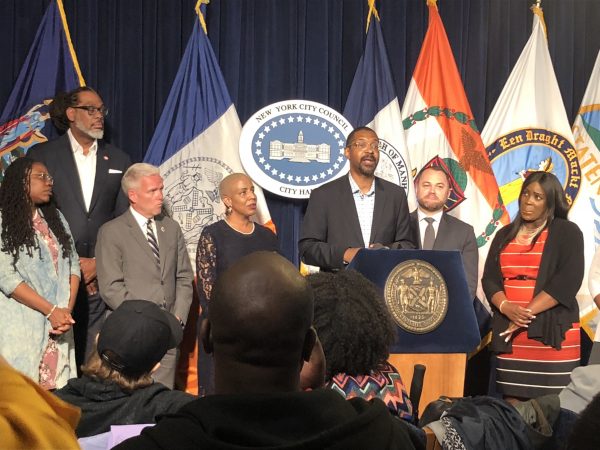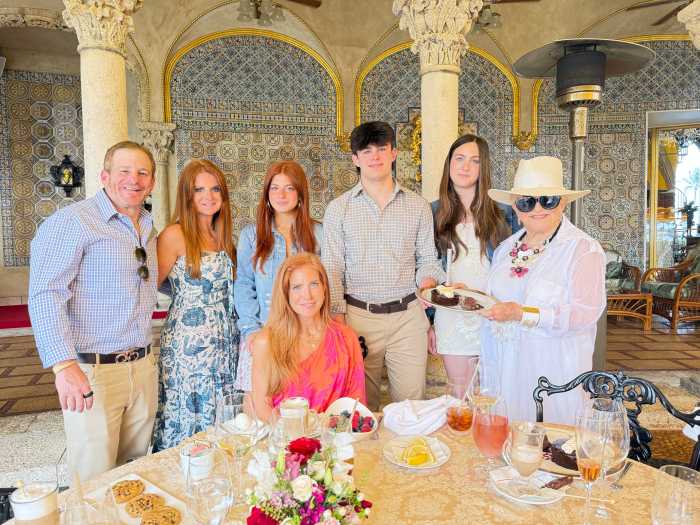A 19th Century African American Settlement in Central Brooklyn is looking to become the first cultural institution in over two decades to be added to the New York City list of Cultural Institutions Group (CIG).


On Tuesday, Majority Leader City Councilwoman Laurie Cumbo (D-Fort Greene, Clinton Hill, Crown Heights) and Councilman Robert Cornegy, Jr. (D-Northern Crown Heights, Bedford-Stuyvesant) called on Mayor Bill de Blasio to designate the Weeksville Heritage Center as part of a group of institutions protected by the city’s Department of Cultural Affairs (DCLA).
The designation will provide for regular funding and maintenance for the center that just earlier this year announced it would have to close due to a lack of funding. The Mayor and City Council are in the midst of final budget negotiations for FY2020
“Weeksville is sacred African American ground. For generations, it served as a beacon of hope for those seeking refuge from the vestiges of slavery. Supporting Weeksville as a Cultural Institutions Group (CIG) is a recognition of African American longevity and a commitment from the city writ large. We are looking to fund the center with somewhere in the ballpark of about $800,000 to a million dollars a year,” said Cumbo.
Weeksville Heritage Center is a multidisciplinary museum dedicated to preserving the history of the 19th century African American community of Weeksville, Brooklyn – one of America’s many free black communities. Founded by James Weeks in the 1830s, the free black community at its height had about 500 residents in 1900, its own newspaper and established the Zion Home for Aged Colored and the Howard Colored Orphan Asylum and Berean Baptist Church.
Earlier this month, President and Executive Director Rob Fields of the organization sent out an email notifying the public that the center could close as soon as July due to “high operating costs and challenging fundraising environment for black cultural institutions.”
The center was forced to launch a crowdfunding campaign in a bid to remain open and with the hope of raising $200,000 by June 30. As of press time, the institution has raised $262,545. The funding would help keep the center open until September and will go toward needed repairs on the Hunterfly Road Houses and as a cash reserve for future needs.
“The solution for us should involve the public sector as well. So I’m thrilled that we are seeing the support rallying from the city. So the question is, ‘what does CIG status means to us?’ It means that in a building that is owned by the City, that we get much more operational support, and facilities support. Which is something we haven’t had. We have a free lease for 99 years, but we are still responsible for all the operations and maintenance including on the historic houses,” said Fields.
Fields went on to note that though the center received more than $450,000 from DCLA in FY19, the funding mostly went to programming, not maintenance and operational costs that is threatening the center’s closure. In FY19 DCLA provided $378,675 in program funding and $78,000 for energy, respectively.
“The NYC Department of Cultural Affairs is committed to providing substantial, ongoing support for Weeksville Heritage Center’s administration and maintenance needs, as it has for many years. It’s essential that we preserve the legacy of this historic black community and keep its story alive. We’re working closely with the organization to put it on a stable footing,” said Ryan Max, a spokesperson for the DCLA.
Currently, there are 33 members of this group, which are each located on City-owned property, and receive significant capital and operating support from the City to help meet basic security, maintenance, administration and energy costs.
In return for this support, these institutions operate as publicly-owned facilities whose mandate is to provide cultural services accessible to all New Yorkers.
The last institution added to the CIG was the Museum of Jewish Heritage in 1998. Most recently Weeksville attempted to get CIG status in 2013 but was denied, according to the New York Times, at a time when the institution was cash strapped following the addition of a new museum building.
“Few institutions have been as impactful in preserving and promoting the art, culture, and history of black culture in our country as the Weeksville Heritage Center. Understanding the center’s importance to our city, my colleagues and I felt it was necessary to call on the City to prioritize the preservation of this center with the resources befitting its contributions to our city’s identity,” said Cornegy.






